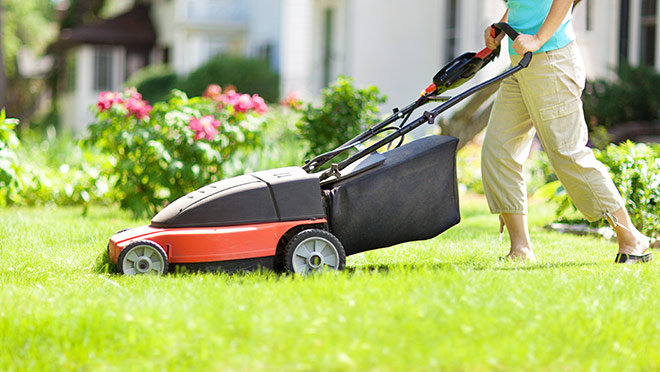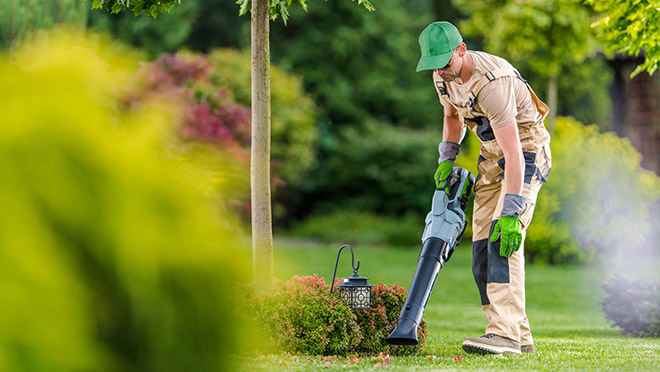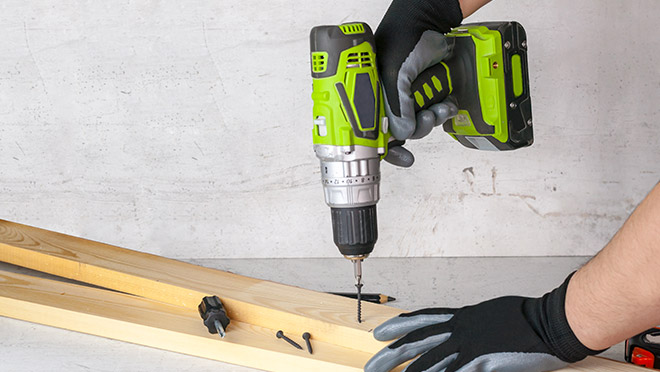With or without a cord, electric tools are on the rise

Manufacturers offer an array of electric tools for the home and garden
There was a time not so long ago when the smell of fumes and the inability to talk to the neighbour over the roar of your gas mower were constants outside the North American home. But as electric power tools have evolved and the move away from fossil fuels advances, the gas mower – traditionally powered by a Briggs & Stratton engine – is no longer Lord of the Grass.
The electric army is on the rise. Some come with a cord, others are battery-powered, and there's always the option of cuttin' it old school: the manual push mower.
Did you know that electric mowers produce noise of 75 decibels or less, about the same as a washing machine? That compares to the 95-decibels-plus of a gas mower, or about the volume of a motorcycle.
Take a look at your favourite hardware store's website and you'll see both cordless and battery-powered options for everything from mowers, to leaf blowers, drills, circular saws, chainsaws, tree pruners, and sanders. At one point, there was even an electric-powered robotic gutter cleaner.
Still, a whole lot of British Columbians have yet to switch to electric tool options. A 2021 survey conducted on behalf of BC Hydro found that even with the increasing popularity of electric lawnmowers, trimmers, leaf blowers and pressure washers, nearly 60% of us in B.C. are still using some gas-powered equipment.
Electric tools drastically reduce emissions, particularly in B.C. where BC Hydro's electricity is generated from clean and renewable resources. They can also save money – filling a lawnmower with gas will cost at least three times more than using electricity.
Here's a look at some of the electric options out there.
Electric mowers make their move
Of all the power mowers listed on one major Canadian retailer website, 43 are corded electrics, 30 are gas-powered, and 19 are cordless electric. Brands like Toro, featuring Briggs & Stratton gas motors, are still in demand and well-reviewed, but the cordless electrics in particular are wildly popular and increasingly attractive because of their ability to share batteries with a variety of other cordless tools. You can even shop for your mower by battery power type and brand, including Ryobi, DeWalt and Toro.
Which one's right for you? If you love thy neighbour and the planet, you'll want to try to find an electric as the greener choice. Not only are they powered by clean hydroelectricity, they're way quieter than the gas mower you grew up with.
And there's another, way greener option altogether. There's a small but growing trend toward ripping out lawns, which require the use of fertilizers and cutting, in favour of natural grasses, mosses or "tapestry lawns" sporting a variety of hardy, low-maintenance plants. If you're curious about options, check out Metro Vancouver's GrowGreen guide to eco-friendly lawns and gardens.

Leaf blower vs. rake
There's nothing quite like a gas-powered leaf blower to raise the ire of the urban dweller in particular. One day a worker is making a racket with a blower, then the wind blows overnight, a whole bunch of leaves fall, and they're out there again the next day.
If you don't have a ton of leaves to deal with or you really appreciate the exercise, lean on the rake as your go-to for cleaning up leaves. And if you hate bending over, consider the Amazing Rake, designed to scoop up and grab leaves so that you can put them in a bag.
Prefer a leaf-blower? There are dozens of cordless electric options at prices starting as low as $50, and higher-powered options in the $200 to $300 range.
Gas or electric, power washers are still pretty loud
Anyone with a north-facing patio or fence in B.C. knows the allure of the seasonal power wash. The bad news is that all power washers use a lot of water – usually between one and three gallons per minute – and make a lot of noise. The good news is that you can at least do the job with electricity, and you can probably rent a power washer if you only need to do it once or twice a year.
Many can get away with a corded electric in the $200 range, or even more portable battery electrics such as the popular Ryobi 1,800 PSI, which is ideal for smaller jobs. If you seek maximum power, you may be tempted to go with a gas-powered version such as the Ryobi 3000 PSI Honda pressure washer.

Cordless tool sets are all the rage
Once you get into cordless tools and select a brand, a whole universe of options opens up. One of the most popular brands for do-it-yourselfers is Ryobi's 18-volt lineup, which offers a six-tool combo starter kit at around $400. Trades people and others more demanding of their tools often opt for pricier and more powerful tool sets offered by the likes of Milwaukee and DeWalt.
Tool options for these sets are expanding all the time, and can include drills/screwdrivers, glue and grease guns, fans, lights, saws, tree pruners/loppers, blowers, mowers, trimmers, chainsaws, nail guns, sanders, vacuums, ratchets, chemical sprayers, and even seed spreaders.
See also: